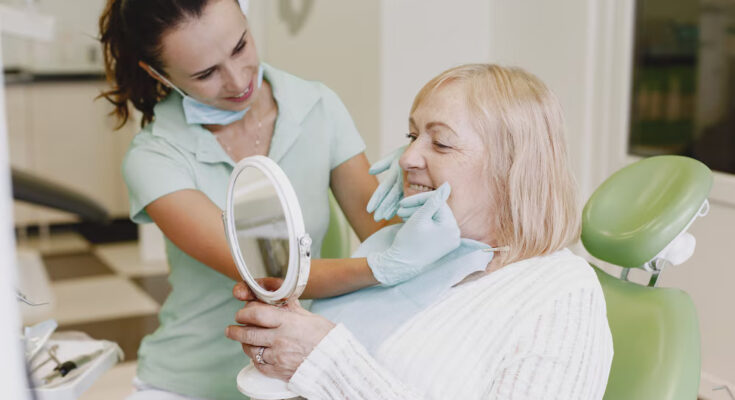Oral health is often overlooked when discussing a role for oral health personnel in stroke prevention health and wellness programs. However, research and public health specialists agree that oral health personnel play a critical role in stroke prevention. Integrating dental care with preventative health measures can improve health outcomes and support a holistic wellness approach for individuals and communities.
The Connection Between Oral Health and Stroke Prevention

It may surprise many people that oral health personnel can contribute to stroke prevention. Analyses show a clear link between poor oral hygiene and improved risk elements for stroke. Gum disease, also known as periodontitis, can cause inflammation in the body, which is a contributing factor in stroke development. By educating patients about proper dental care and treating oral infections early, oral health personnel become key players in preventative health strategies.
Dental hygienists, dentists, and oral health educators should be included in wellness programs to monitor oral health indicators that may signal underlying cardiovascular conditions. Their role aligns with holistic wellness practices by addressing the body as an interconnected system rather than isolating dental care from overall health.
Preventative Health and Oral Care
Preventative health is proactive care that reduces the risk of chronic diseases before they develop. Oral health personnel can support preventative health by:
- Screening patients for signs of systemic inflammation.
- Educating about the impact of oral bacteria on heart health.
- Promoting regular dental cleanings to minimize harmful bacteria.
Preventative health programs should not only focus on diet, exercise, and routine medical checkups but also include oral health care as a vital component. Stroke prevention efforts will be more effective when preventative health measures are broadened to include dental screenings.
Health and Wellness Tips from Oral Health Experts

Here are some health and wellness tips provided by oral health personnel that align with stroke prevention and holistic wellness principles:
1. Maintain Proper Oral Hygiene
Brush twice daily, floss regularly, and use an antibacterial mouthwash to reduce inflammation-causing bacteria.
2. Watch for Warning Signs
Bleeding gums, bad breath, or receding gums may indicate periodontitis. Early intervention supports preventative health goals and reduces stroke risk.
3. Follow a Heart-Healthy Diet
Oral health personnel often advise patients to limit sugar intake and consume anti-inflammatory foods like leafy greens, berries, and nuts, promoting overall health and wellness.
These health and wellness tips are simple, effective, and fit seamlessly into a holistic wellness plan that supports stroke prevention.
Holistic Wellness and Stroke Prevention
Holistic wellness considers the mind, body, and spirit in health practices. Stroke prevention is not limited to controlling blood pressure or cholesterol — it also involves managing stress, maintaining a balanced diet, staying physically active, and ensuring optimal oral health.
Oral health personnel are in a unique position to support holistic wellness. They can educate patients about the mouth-body connection and collaborate with other healthcare providers in wellness programs. A holistic wellness approach fosters long-term health benefits, aligning dental care with broader preventative health measures.
Creating a Wellness Program for Stroke Prevention

A comprehensive wellness program aimed at stroke prevention should include the expertise of oral health personnel. Here’s how to build a program focused on preventative health and holistic wellness:
Step 1: Health Screenings
Incorporate dental assessments into regular health checkups to identify risks early.
Step 2: Patient Education
Offer health and wellness tips through workshops or online resources that include oral health guidance.
Step 3: Lifestyle Coaching
Support healthy habits like proper nutrition, stress management, and oral care routines.
Step 4: Collaboration
Encourage oral health personnel to work alongside medical doctors, nutritionists, fitness coaches, and mental health professionals to deliver a holistic wellness experience.
Step 5: Community Outreach
Develop wellness programs that target at-risk populations with educational materials on stroke prevention and preventative health, highlighting the role of oral health.
Final Thoughts
Oral health personnel have a crucial role to play in stroke prevention. Their involvement in wellness programs strengthens preventative health strategies and aligns with holistic wellness principles. By following health and wellness tips that emphasize oral care, individuals can protect themselves from strokes and other health complications.
Integrating dental professionals into stroke prevention efforts is not only innovative but also necessary. A truly effective wellness program is one that supports the whole person — body, mind, and oral health included.
FAQs: Oral Health and Stroke Prevention
1. What is the role of oral health personnel in stroke prevention?
Oral health personnel help prevent strokes by identifying signs of gum disease and inflammation that contribute to stroke risk. They educate patients about oral hygiene practices that support preventative health and collaborate in wellness programs for a holistic approach to health.
2. Why is oral health important in preventative health?
Oral health is essential in preventative health because poor oral hygiene can lead to systemic inflammation, increasing the risk of chronic diseases like stroke. Preventative health strategies that include dental care help individuals maintain overall wellness.
3. How can I integrate oral health into my wellness program?
You can include dental assessments in your health screenings, provide educational resources on oral hygiene, and promote health and wellness tips related to oral care. Collaboration between oral health personnel and other healthcare providers strengthens a holistic wellness program.
4. What are some health and wellness tips for stroke prevention?
Some helpful health and wellness tips include maintaining proper oral hygiene, eating a heart-healthy diet, managing stress, and engaging in regular physical activity. These habits support preventative health and reduce the risk of stroke.
5. What is holistic wellness, and how does it relate to stroke prevention?
Holistic wellness involves caring for the whole person — physical, mental, emotional, and oral health. Stroke prevention aligns with holistic wellness by addressing all aspects of health, including oral hygiene, as part of a comprehensive wellness program.



